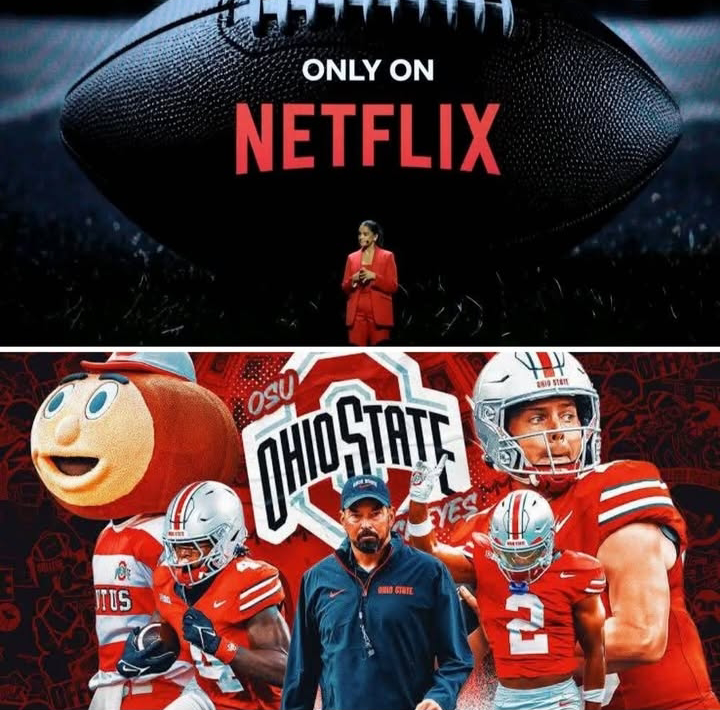In the ever-evolving landscape of college athletics, legal battles are not uncommon. However, when one of the most prestigious programs in the nation, Florida State University (FSU), is involved in a lawsuit with its conference, the story takes on a new level of intrigue and significance. Recently, a long-running legal dispute between Florida State and the Atlantic Coast Conference (ACC) came to an end with a settlement that has been hailed as a “win, win, win” for FSU athletics.
For the uninitiated, this lawsuit stemmed from Florida State’s dissatisfaction with the financial distribution model within the ACC, particularly in how the conference’s revenue is divided among its member schools. The lawsuit was largely centered around FSU’s belief that they were not receiving a fair share of the conference’s revenue, despite being one of the most successful and marketable programs in the ACC. The settlement marks the resolution of that dispute, with the agreement expected to have wide-ranging implications not only for FSU but also for the ACC and the broader landscape of college sports.
### The Background of the Lawsuit
To fully understand why this settlement is such a significant development, it’s important to first explore the origins of the legal battle. The heart of the dispute lay in the ACC’s revenue-sharing model, which is largely based on the success and marketability of the member schools. Under this system, each school receives a portion of the conference’s revenue, primarily generated through media rights deals, television contracts, and the College Football Playoff (CFP) payouts.
Florida State, one of the ACC’s most prominent programs, felt that it was being shortchanged in terms of revenue distribution. The Seminoles have long been one of the ACC’s most successful teams, particularly in football, where they’ve won multiple national championships and have been a consistent contender in the conference. However, despite their success and significant fanbase, FSU argued that their share of the revenue did not adequately reflect their contributions to the conference’s overall success and marketability.
This frustration came to a head in 2022 when FSU filed a lawsuit against the ACC, seeking to address what they saw as an inequitable system. The lawsuit alleged that the current revenue distribution model unfairly favored other schools in the conference, particularly those with less football success or a smaller national profile. Florida State, which has always been one of the most recognizable programs in college football, felt that their financial standing within the ACC didn’t align with their athletic prominence.
### The Settlement: A ‘Win, Win, Win’
The recent settlement between Florida State and the ACC has been met with widespread approval from FSU athletics and stakeholders. The settlement is being described as a “win, win, win” for Florida State, meaning that the resolution benefits not only the university but also its athletics program and the broader structure of college sports.
**1. Financial Relief for FSU:**
The primary benefit of the settlement for Florida State is the financial relief it brings. While the specific terms of the agreement have not been publicly disclosed, it is widely believed that the settlement provides Florida State with a more favorable revenue-sharing agreement moving forward. This is a crucial win for FSU, as the school can now reinvest these funds into its athletic programs, particularly in football, which remains the flagship program for the university.
Florida State has long been a powerhouse in college football, and the financial resources that come from a larger share of the ACC’s revenue will help them remain competitive at the highest level. With this additional funding, FSU can enhance recruiting efforts, improve facilities, and secure top-tier coaching talent—key factors in maintaining their success both within the ACC and on the national stage. As college athletics become increasingly dependent on financial resources, this agreement ensures that Florida State remains a player in the ever-competitive college football landscape.
**2. Strengthened Standing in the ACC:**
The settlement also strengthens Florida State’s standing within the ACC. While the conference is home to several successful programs, FSU is undoubtedly one of its most prominent members, particularly in football. The settlement gives the Seminoles a greater voice within the conference, ensuring that their contributions are better reflected in how the ACC distributes its revenue.
FSU’s success on the field has long been a cornerstone of the ACC’s football reputation, and this agreement ensures that the university’s athletic achievements are acknowledged and appropriately rewarded. This enhanced standing could also lead to more favorable terms in future television and media deals, which would further benefit Florida State’s bottom line.
Moreover, the settlement allows Florida State to remain in the ACC for the foreseeable future, providing the stability and structure needed for long-term planning. There had been speculation that FSU might seek to leave the conference for a more lucrative television deal, potentially moving to a different Power Five conference like the SEC or Big Ten. However, the settlement alleviates much of the financial disparity that prompted this speculation, allowing FSU to remain with the ACC while continuing to push for the resources it needs to compete at the highest level.
**3. A Win for the Broader ACC Conference:**
While the settlement is largely viewed as a win for Florida State, it also benefits the ACC as a whole. The agreement marks a step toward ensuring that all member schools are satisfied with the conference’s revenue-sharing model. The ACC, like many other conferences, has faced challenges in adapting to the changing landscape of college athletics, particularly with the explosion of media rights deals and the increasing financial power of the larger programs.
By addressing FSU’s concerns, the ACC has avoided the potential fracture that could have resulted from a major school like Florida State leaving the conference. Such a move could have severely impacted the conference’s long-term financial health and competitive balance. The settlement ensures that FSU remains an integral part of the ACC, preserving the conference’s strength as a competitive entity in the world of college football.
Furthermore, the agreement may prompt other conferences to re-evaluate their own revenue-sharing models, potentially leading to a broader reevaluation of how college sports are financed. In a world where major conferences like the SEC and Big Ten are expanding their television deals and conference memberships, smaller conferences like the ACC must remain adaptable and responsive to the needs of their member institutions.
**4. Enhanced Competitiveness for the ACC:**
For Florida State, the settlement provides more than just financial resources—it allows the program to remain competitive in an era where success in college football is closely tied to financial power. With better resources, FSU can continue to compete with the likes of Clemson, Miami, and other top programs within the ACC. Moreover, the additional financial flexibility enables Florida State to bolster its non-revenue sports, further improving the overall athletic program.
The settlement ultimately helps to ensure that the ACC remains competitive with other Power Five conferences, especially as teams like Texas and Oklahoma prepare to join the SEC. By addressing Florida State’s concerns, the ACC is better positioned to retain its top talent, increase its national visibility, and remain relevant in the rapidly changing college sports ecosystem.
### Conclusion
The settlement in the lawsuit between Florida State and the ACC is a significant victory for the Seminoles and a major step forward for college athletics. By ensuring that Florida State receives a more equitable share of the conference’s revenue, the agreement allows the university to remain competitive and invest in its athletic programs. It also strengthens Florida State’s standing within the ACC, ensuring that the university continues to play a central role in the conference’s future success.
For the broader landscape of college sports, the settlement sends a message that institutions are willing to fight for fair compensation while still working within the framework of their conferences. It’s a win for Florida State, a win for the ACC, and a win for college athletics as a whole, as it demonstrates the importance of fair and equitable revenue-sharing models in maintaining the integrity and competitiveness of college sports. As FSU looks to the future, this settlement positions them well for continued success both on the field and in the financial arena.






Leave a Reply